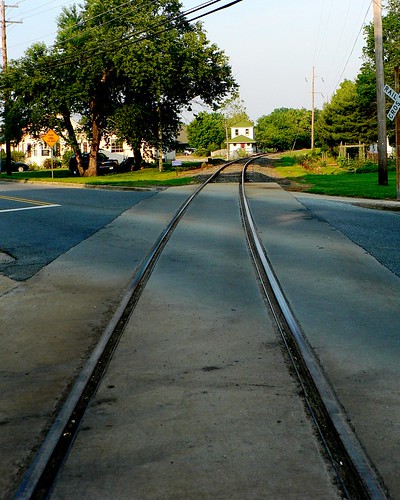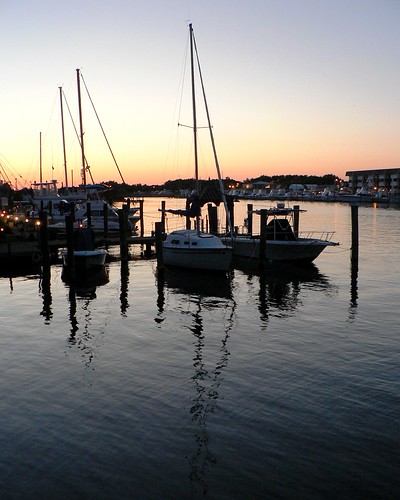 That horn reminds me that my small city -- Lewes, Delaware -- has very blue-collar roots. It blew each morning at seven to call the workers from their small frame houses in several neighborhoods of the old town, through mercantile downtown, past the busy fishing port, and to their jobs at the fish factories that once lined the Delaware Bay shore out towards Fort Miles and its shore defenses batteries.
That horn reminds me that my small city -- Lewes, Delaware -- has very blue-collar roots. It blew each morning at seven to call the workers from their small frame houses in several neighborhoods of the old town, through mercantile downtown, past the busy fishing port, and to their jobs at the fish factories that once lined the Delaware Bay shore out towards Fort Miles and its shore defenses batteries.The horn still calls out each morning. I sometimes hear it as I head out for my commute to Dover. On week-ends it occasionally calls me from my bed to my jobs around the house. The small frame worker's houses have been restored as mini-Victorians. Downtown's hardware store, five-n-dime and grocery have become a series of lovely boutiques.
 The working fishing boats have gone from the port, replaced by sailboats, tourist head-boats and the sleek powerboats of recreational anglers. The fish factories that once gave Lewes its distinctive odor have been plowed-under for a new crop of large beach-front and near beach-front homes. Some with full-time residents; many as vacation homes for people whose working life is hours away. Fort Miles lives on as a museum piece within Cape Henlopen State Park.
The working fishing boats have gone from the port, replaced by sailboats, tourist head-boats and the sleek powerboats of recreational anglers. The fish factories that once gave Lewes its distinctive odor have been plowed-under for a new crop of large beach-front and near beach-front homes. Some with full-time residents; many as vacation homes for people whose working life is hours away. Fort Miles lives on as a museum piece within Cape Henlopen State Park.Lewes has changed in the 20 years I've lived here. Change is a constant in all life, of course, but my town has changed profoundly, I think. And not all for the best.
I remember when I first discovered Lewes. I had just begun working at a local radio station and was sent out as part of a remote broadcast from Lewes' Second Street. I loved it. It had high-end shops and a five-n-dime. The hardware store had hardwood floors and a hammered tin ceiling. The street was busy with both vacationers and local farmers and workers. It felt to me like what a small town in America should feel like. Rich and poor, white and black, workers and retirees all going about their several different sorts of business.
I knew that this was the sort of real town I wanted to be a part of. I was more familiar with Rehoboth Beach and Bethany Beach; resort towns I had visited each summer of my childhood. I love both of those towns. But, in looking for a place to settle, I wanted a year-round small town, not a busy summer resort. That was the Lewes I found.
Now, I find, my year-round working town filled with folks from all walks of life is becoming a place for wealthy people. Some are retired here. Some are here in their second homes as often as they can be and are looking ahead to retiring here.
Many of the shops are marketing to retirees and vacationers. There is still a small grocery, but for most day-to-day shopping I must leave town. The hardware store is gone. The five-n-dime is gone.
Work in Lewes is now largely retail. But retail workers can't afford to live here. There is still a hospital and medical professions abound. But, except for the Doctors, most who work in that part of Lewes' economy can't afford to live here. We're losing our economic and racial diversity. And we are losing our age-range diversity. At 45 I am often one of the youngest people at public meetings in town.
These changes hit me in the heart the other day. I was on the phone with a part-time resident who has become active in efforts to control growth around Lewes (a laudable effort). I am a part of the Lewes Planning Commission and so often find myself in conversations of this sort. I can't quote exactly what this woman told me, but it was something along the lines of "we must protect our lovely Village." I know she used the word "Village" because I remember thinking, "it's a city, dammit, please don't turn it into a quaint little retirement Village."
That's not who we were and not who we should be.
No comments:
Post a Comment
Note: Only a member of this blog may post a comment.